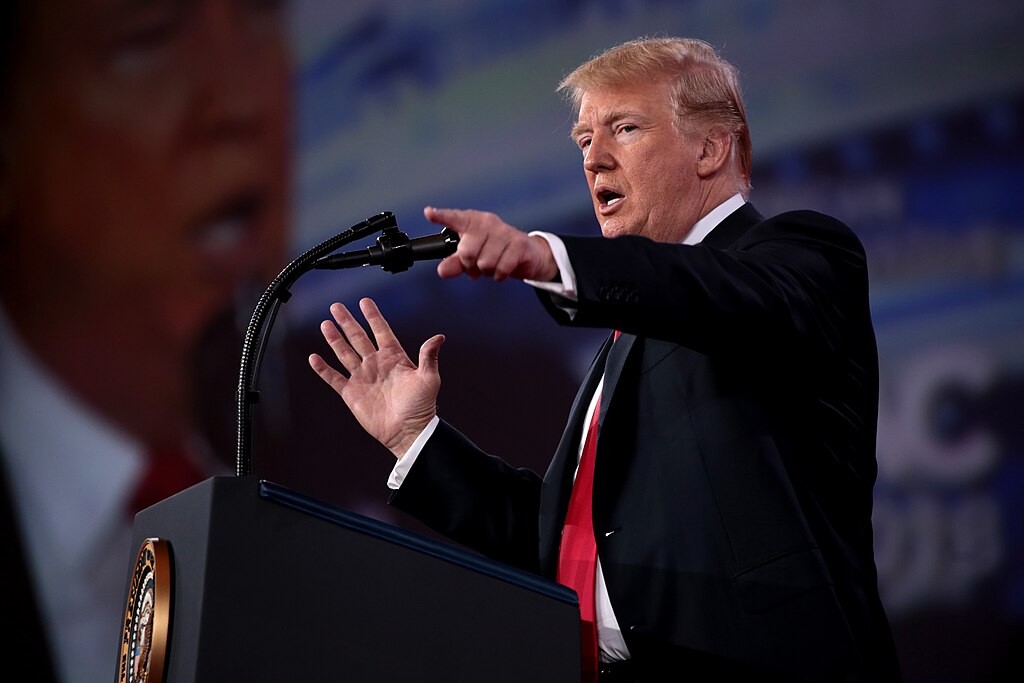President-elect Donald Trump has threatened to reclaim U.S. control over the Panama Canal, citing "exorbitant" fees imposed by Panama and expressing concerns over potential foreign influence. This assertion has ignited international debate and raised questions about the feasibility and implications of such a move.
Trump's Assertions and Concerns
In a recent post on Truth Social, Trump criticized the fees charged by Panama for canal usage, labeling them as "ridiculous" given the historical U.S. investment in the canal's construction and operation. He stated, "If the principles, both moral and legal, of this magnanimous gesture of giving are not followed, then we will demand that the Panama Canal be returned to us, in full, and without question." Additionally, Trump expressed apprehension about the canal potentially falling into "the wrong hands," alluding to concerns over Chinese involvement, despite China not controlling the canal's operations.
Historical Context of the Panama Canal
The United States constructed the Panama Canal in the early 20th century, inaugurating it in 1914. Under the Torrijos–Carter Treaties signed in 1977, the U.S. agreed to transfer control of the canal to Panama, a process completed on December 31, 1999. Since then, the Panama Canal Authority, an autonomous Panamanian government agency, has managed the canal's operations.
International and Legal Implications
Trump's proposal to reclaim the canal challenges established international agreements and could strain U.S.-Panama relations. The Torrijos–Carter Treaties, ratified by both nations, do not provide a legal framework for the U.S. to unilaterally resume control over the canal. Such an action would likely face significant legal and diplomatic obstacles, potentially leading to international disputes.
Public Reaction
The President-elect's statements have elicited a range of reactions on social media. Twitter user @GlobalAffairsAnalyst commented, "Trump's threat to retake the Panama Canal disregards international treaties and could destabilize diplomatic relations." In contrast, @AmericaFirstSupporter expressed, "Reclaiming the canal is a bold move to protect U.S. interests and counter foreign influence." User @HistoryProfessor noted, "The Panama Canal has been under Panamanian control since 1999; any attempt to reverse this is unprecedented." Meanwhile, @LegalEagle tweeted, "International law doesn't support unilateral reclamation of the canal; this could lead to serious legal challenges." Another user, @TradeExpert, observed, "The canal is vital for global trade; disrupting its operations could have widespread economic repercussions." Lastly, @DiplomacyWatch stated, "Such statements strain U.S.-Panama relations and undermine decades of diplomatic progress."
Potential Impact on Global Trade
The Panama Canal is a critical conduit for international maritime trade, facilitating the transit of approximately 14,000 ships annually and accounting for about 2.5% of global seaborne ... . Any disruption or alteration in its governance could have significant repercussions for global shipping routes, trade efficiencies, and economic stability.
While President-elect Trump's statements underscore his administration's focus on reassessing international agreements, the proposal to reclaim the Panama Canal presents complex legal, diplomatic, and economic challenges. Engaging in constructive dialogue with Panamanian authorities and adhering to established treaties will be essential in addressing concerns related to canal operations and international trade relations.



 India–U.S. Interim Trade Pact Cuts Auto Tariffs but Leaves Tesla Out
India–U.S. Interim Trade Pact Cuts Auto Tariffs but Leaves Tesla Out  U.S. Lawmakers to Review Unredacted Jeffrey Epstein DOJ Files Starting Monday
U.S. Lawmakers to Review Unredacted Jeffrey Epstein DOJ Files Starting Monday  US Pushes Ukraine-Russia Peace Talks Before Summer Amid Escalating Attacks
US Pushes Ukraine-Russia Peace Talks Before Summer Amid Escalating Attacks  Vietnam’s Trade Surplus With US Jumps as Exports Surge and China Imports Hit Record
Vietnam’s Trade Surplus With US Jumps as Exports Surge and China Imports Hit Record  Japan Economy Poised for Q4 2025 Growth as Investment and Consumption Hold Firm
Japan Economy Poised for Q4 2025 Growth as Investment and Consumption Hold Firm  Ohio Man Indicted for Alleged Threat Against Vice President JD Vance, Faces Additional Federal Charges
Ohio Man Indicted for Alleged Threat Against Vice President JD Vance, Faces Additional Federal Charges  Iran–U.S. Nuclear Talks in Oman Face Major Hurdles Amid Rising Regional Tensions
Iran–U.S. Nuclear Talks in Oman Face Major Hurdles Amid Rising Regional Tensions  Gold Prices Slide Below $5,000 as Strong Dollar and Central Bank Outlook Weigh on Metals
Gold Prices Slide Below $5,000 as Strong Dollar and Central Bank Outlook Weigh on Metals  Trump Signs Executive Order Threatening 25% Tariffs on Countries Trading With Iran
Trump Signs Executive Order Threatening 25% Tariffs on Countries Trading With Iran  TrumpRx Website Launches to Offer Discounted Prescription Drugs for Cash-Paying Americans
TrumpRx Website Launches to Offer Discounted Prescription Drugs for Cash-Paying Americans  Jack Lang Resigns as Head of Arab World Institute Amid Epstein Controversy
Jack Lang Resigns as Head of Arab World Institute Amid Epstein Controversy  South Africa Eyes ECB Repo Lines as Inflation Eases and Rate Cuts Loom
South Africa Eyes ECB Repo Lines as Inflation Eases and Rate Cuts Loom  Trump Endorses Japan’s Sanae Takaichi Ahead of Crucial Election Amid Market and China Tensions
Trump Endorses Japan’s Sanae Takaichi Ahead of Crucial Election Amid Market and China Tensions  Norway Opens Corruption Probe Into Former PM and Nobel Committee Chair Thorbjoern Jagland Over Epstein Links
Norway Opens Corruption Probe Into Former PM and Nobel Committee Chair Thorbjoern Jagland Over Epstein Links  South Korea Assures U.S. on Trade Deal Commitments Amid Tariff Concerns
South Korea Assures U.S. on Trade Deal Commitments Amid Tariff Concerns  Trump Allegedly Sought Airport, Penn Station Renaming in Exchange for Hudson River Tunnel Funding
Trump Allegedly Sought Airport, Penn Station Renaming in Exchange for Hudson River Tunnel Funding  Gold and Silver Prices Slide as Dollar Strength and Easing Tensions Weigh on Metals
Gold and Silver Prices Slide as Dollar Strength and Easing Tensions Weigh on Metals 































